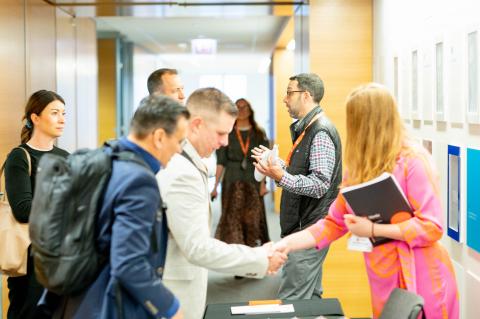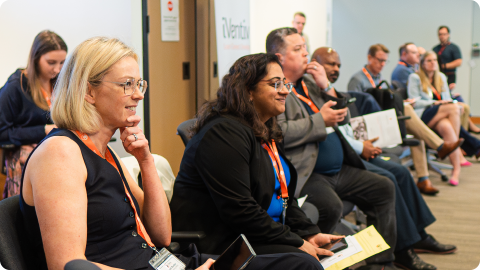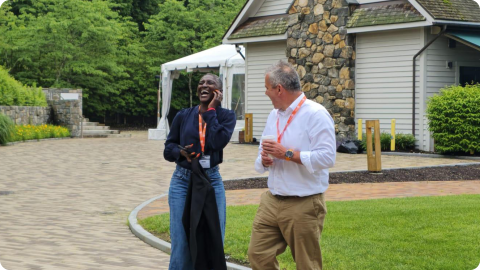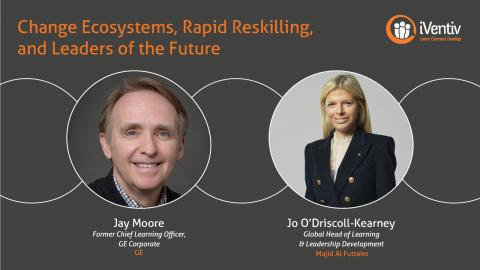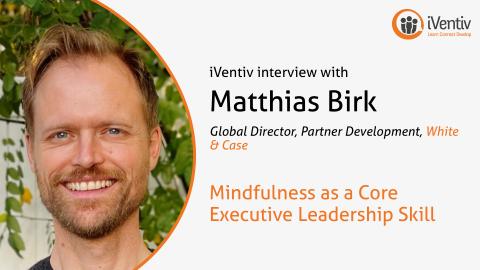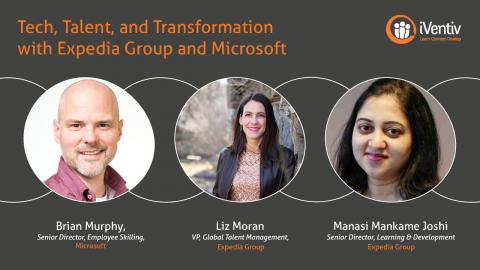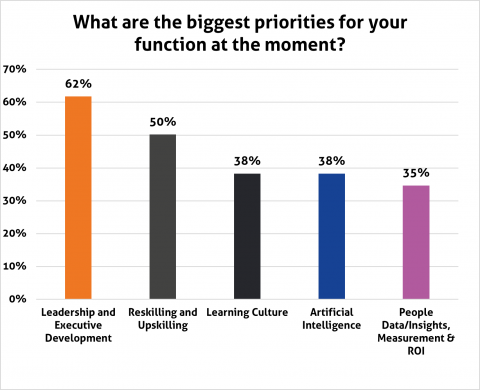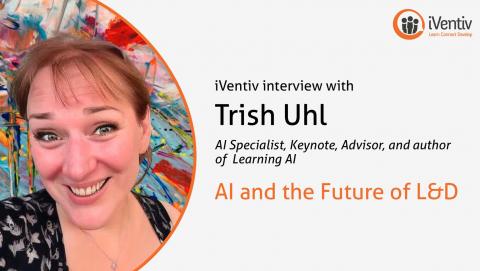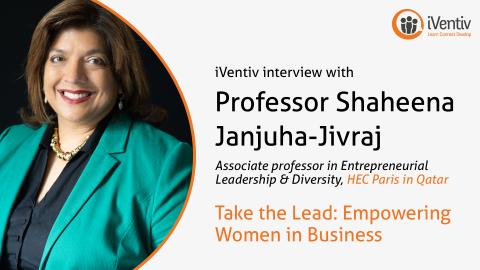Submitted by networkadmin on
In this exclusive interview, Vidya Krishnan (CLO, Ericsson), and Nigel Paine (Event Chair, Co-Presenter, Learning Now TV & Former Head of People Development, BBC) talk all things skills, tech, and the future of work.
How do you become CLO?
Vidya's lifelong passion for learning emerged from a multitude of experiences: from roles such as a camp counsellor in her youth, to her graduation to electrical engineer, to then leading technology training at Ericsson.
She then pivoted from leading tech, to leading learning – a function that was she believed had been redefined as both a human and digital mechanism for connecting people with knowledge and expertise. Her career evolution in the L&D sphere took her to where she is now; Chief Learning Officer at Ericsson, with the aim to transform the skill sets and mindsets of the company's global workforce.
Nigel, on the other hand, describes a similar journey with one clear distinction: his continued focus on adult learning and helping organisations and individuals enhance their roles through learning. Unlike Vidya, Nigel has dedicated most of his life to corporate learning, eventually contributing to the field through writing and research.
The key topic on the minds of both Nigel and Vidya in this conversation: are skills-based organisations hype or hope? Read on to find out.
Skills-Based Organisations: Hype or Hope?
Nigel and Vidya go on to explore skills-based organisations and whether or not they’re, in the words of Nigel Paine "hype or hope." Vidya talks about these organisations as leading a significant shift towards recognising and valuing the intrinsic skills and potential within individuals beyond traditional job roles and descriptions. This approach, she believes, is critical for organisations like Ericsson, aiming to adapt and thrive amidst rapid technological advancements and market changes.
Why should skills-based approaches for organisations be essential?
- Vidya says that they "look at people as more than their CV, as more than the job role that they held before, as in fact a collection - a portfolio, if you will - of skills, of lived experiences, of contributions", and acknowledge the ever-present need to value skills over traditional metrics like experience or job titles, a practice that, while not new, has lacked consistency and systematic application in the past.
- Nigel mentions that it necessitates a fundamental organisational transformation, saying that "you have to make jobs looser. You have to make the ability to move between roles and between teams looser because you're focusing on developing that skill, that skill portfolio in every single person rather than do a job" - an approach that counters the traditional rigidity of organisational charts.
- Finally, Vidya talks about how it aligns with the natural human tendency to "learn, unlearn, and relearn", embodying the spirit of exploration and adaptation.
Vidya illustrates that skills-based organisations foster a culture where individuals are encouraged to continuously develop their skill sets, enabling the organisation to remain agile and responsive to new challenges and opportunities. This culture promotes a more "holistic view of talent, recognising the full range of an individual's skills, experiences, and potential contributions beyond the confines of specific job roles."
As this discussion highlights, Heads of Learning are pursuing skills-based strategies because they believe it can facilitate job-crafting - an approach that challenges traditional career progression models, advocating for a more personalised and dynamic path to professional development.
Organisations, says both Vidya and Nigel, represent a hopeful and necessary evolution towards a more adaptive, innovative, and human-centric workplace. This paradigm shift is portrayed as not just beneficial but essential for organisations aiming to navigate the complexities of the modern business landscape and harness the full potential of their workforce.
Making the unimaginable possible: How does that influence your own learning vision?
Vidya's vision for learning, both within Ericsson and more broadly, is influenced by the mission "to make the unimaginable possible" in three significant ways:
- Empowering Employees: There's a focus on building employees' skill sets and mindsets to navigate and contribute to the megatrends shaping our world. This includes fostering an environment where employees are encouraged to "look beyond" current technologies and trends, understand their personal growth areas, and "embrace the vulnerability" that comes with learning.
- Educating Customers: Vidya emphasises a "sacred commitment" to educate Ericsson's customers, sharing expertise to foster educated partnerships. This approach aims at creating disruptive technologies and experiences by collaboratively harnessing the collective knowledge of Ericsson and its customers.
- Enhancing Society: The third aspect of Vidya's vision extends to societal contributions through initiatives like 'connect to learn', which partners with organisations such as UNESCO to bring education and connectivity to underserved communities. These efforts are aimed at preparing society at large for the future, equipping individuals with the knowledge and skills necessary for the 21st century.
Vidya also highlights the importance of leadership in fostering an environment where learning is encouraged, and vulnerabilities are shared, thus enabling individuals and organisations to prepare for both the known and unknown challenges of the future.
Vidya's vision for learning is deeply intertwined with Ericsson's mission, which emphasises that the capacity to learn, adapt, and innovate is crucial for personal development, organisational success, and societal progress.
What advice would you give to CLOs just starting our on their journey towards skills-based organisations?
For CLOs embarking on the journey towards establishing skills-based organisations, Nigel and Vidya outline a few key points:
- Embrace Courage and Purpose: Start your journey without fear. Recognise that learning and evolving together as an organisation is a collective journey that requires overcoming initial doubts and uncertainties.
- Focus on Critical Skills: It may seem counterintuitive, but for Vidya, narrowing the focus to a few critical skills at Ericsson significantly impacted organisational transformation. By concentrating efforts on developing a single skill across the company, she created "a simple yet effective model for systemic skill development". This focused approach simplified the complexity often associated with L&D initiatives.
- Think Holistically: Consider what kind of organisation you would want to work in and strive to build that. Look beyond delivering courses and aim to "create an environment that fosters growth, innovation, and fulfillment."
- Build for the Future: The future belongs to those who are prepared to learn, unlearn, and relearn. As a CLO, your role is not just about facilitating learning but creating a culture where innovation, curiosity, and growth are integral to the organisation's DNA.
With over 25 years of experience in corporate learning, Nigel is a regular speaker, writer, and broadcaster on the topics of learning culture, technology, and leadership. Between 2002 and 2006 Nigel headed up the BBC’s Learning and Development operation. Following this, he started his own company, NigelPaine.com Ltd, that is focused on building great workplaces that develop great people. Nigel’s new book on organisational learning is set for release later this year.
Vidya Krishnan is CLO at Ericsson leading the company’s Global Learning and Development team as part of Ericsson’s Global People organisation. She is a technology and entrepreneurial leader with 20+ years of experience in Networks, Digital Services, Learning, Engineering, Consulting, and Business Transformation Operations. She fervently believes that learning is the intersection of execution, strategy, and engagement.
Frequently Asked Questions
What is a skills-based organisation, and why is it important?
A skills-based organisation values the intrinsic skills and potential within individuals beyond traditional job roles and descriptions. This approach is essential because it recognises people as a portfolio of skills, experiences, and contributions rather than just their job titles or previous roles. It promotes a culture of continuous learning, agility, and adaptability, which is critical for organisations to thrive amidst rapid technological advancements and market changes.
What are the main challenges in implementing a skills-based approach in organisations?
The main challenges include the need for a fundamental transformation in organisational structure, making job roles and team movements more flexible. Organisations must shift their focus from traditional metrics like experience and job titles to valuing skills and lived experiences. This requires overcoming initial doubts and uncertainties, fostering a culture of continuous learning, and creating an environment that encourages innovation and growth.
What advice do Vidya and Nigel have for CLOs starting their journey towards skills-based organisations?
Their advice includes embracing courage and purpose, focusing on critical skills, thinking holistically about the organisation, and building for the future. They stress the importance of starting the journey without fear, narrowing the focus to a few critical skills, creating an environment that fosters growth and innovation, and preparing the organisation to continuously learn, unlearn, and relearn.
How do skills-based organisations align with the natural human tendency to learn, unlearn, and relearn?
Skills-based organisations align with the natural human tendency to learn, unlearn, and relearn by promoting a culture of exploration and adaptation. This approach encourages individuals to continuously develop their skill sets, stay agile, and respond effectively to new challenges and opportunities. It recognises the full range of an individual's skills, experiences, and potential contributions, fostering a more dynamic and innovative organisational environment.


